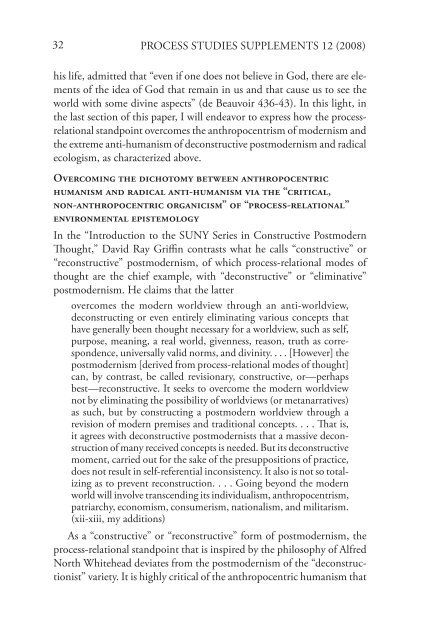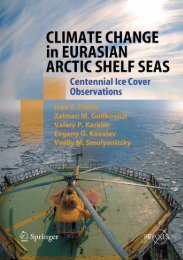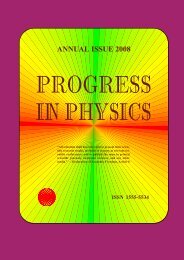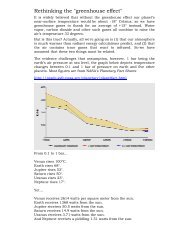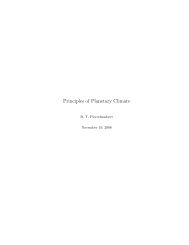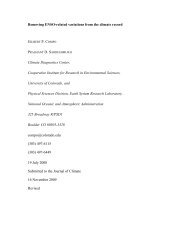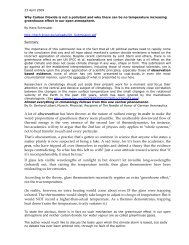Process Studies Supplement Overcoming Anthropocentric ... - Here
Process Studies Supplement Overcoming Anthropocentric ... - Here
Process Studies Supplement Overcoming Anthropocentric ... - Here
Create successful ePaper yourself
Turn your PDF publications into a flip-book with our unique Google optimized e-Paper software.
32<br />
PROCESS STUDIES SUPPLEMENTS 12 (2008)<br />
his life, admitted that “even if one does not believe in God, there are elements<br />
of the idea of God that remain in us and that cause us to see the<br />
world with some divine aspects” (de Beauvoir 436-43). In this light, in<br />
the last section of this paper, I will endeavor to express how the processrelational<br />
standpoint overcomes the anthropocentrism of modernism and<br />
the extreme anti-humanism of deconstructive postmodernism and radical<br />
ecologism, as characterized above.<br />
<strong>Overcoming</strong> the dichotomy between anthropocentric<br />
humanism and radical anti-humanism via the “critical,<br />
non-anthropocentric organicism” of “process-relational”<br />
environmental epistemology<br />
In the “Introduction to the SUNY Series in Constructive Postmodern<br />
Thought,” David Ray Griffin contrasts what he calls “constructive” or<br />
“reconstructive” postmodernism, of which process-relational modes of<br />
thought are the chief example, with “deconstructive” or “eliminative”<br />
postmodernism. He claims that the latter<br />
overcomes the modern worldview through an anti-worldview,<br />
deconstructing or even entirely eliminating various concepts that<br />
have generally been thought necessary for a worldview, such as self,<br />
purpose, meaning, a real world, givenness, reason, truth as correspondence,<br />
universally valid norms, and divinity. . . . [However] the<br />
postmodernism [derived from process-relational modes of thought]<br />
can, by contrast, be called revisionary, constructive, or—perhaps<br />
best—reconstructive. It seeks to overcome the modern worldview<br />
not by eliminating the possibility of worldviews (or metanarratives)<br />
as such, but by constructing a postmodern worldview through a<br />
revision of modern premises and traditional concepts. . . . That is,<br />
it agrees with deconstructive postmodernists that a massive deconstruction<br />
of many received concepts is needed. But its deconstructive<br />
moment, carried out for the sake of the presuppositions of practice,<br />
does not result in self-referential inconsistency. It also is not so totalizing<br />
as to prevent reconstruction. . . . Going beyond the modern<br />
world will involve transcending its individualism, anthropocentrism,<br />
patriarchy, economism, consumerism, nationalism, and militarism.<br />
(xii-xiii, my additions)<br />
As a “constructive” or “reconstructive” form of postmodernism, the<br />
process-relational standpoint that is inspired by the philosophy of Alfred<br />
North Whitehead deviates from the postmodernism of the “deconstructionist”<br />
variety. It is highly critical of the anthropocentric humanism that


